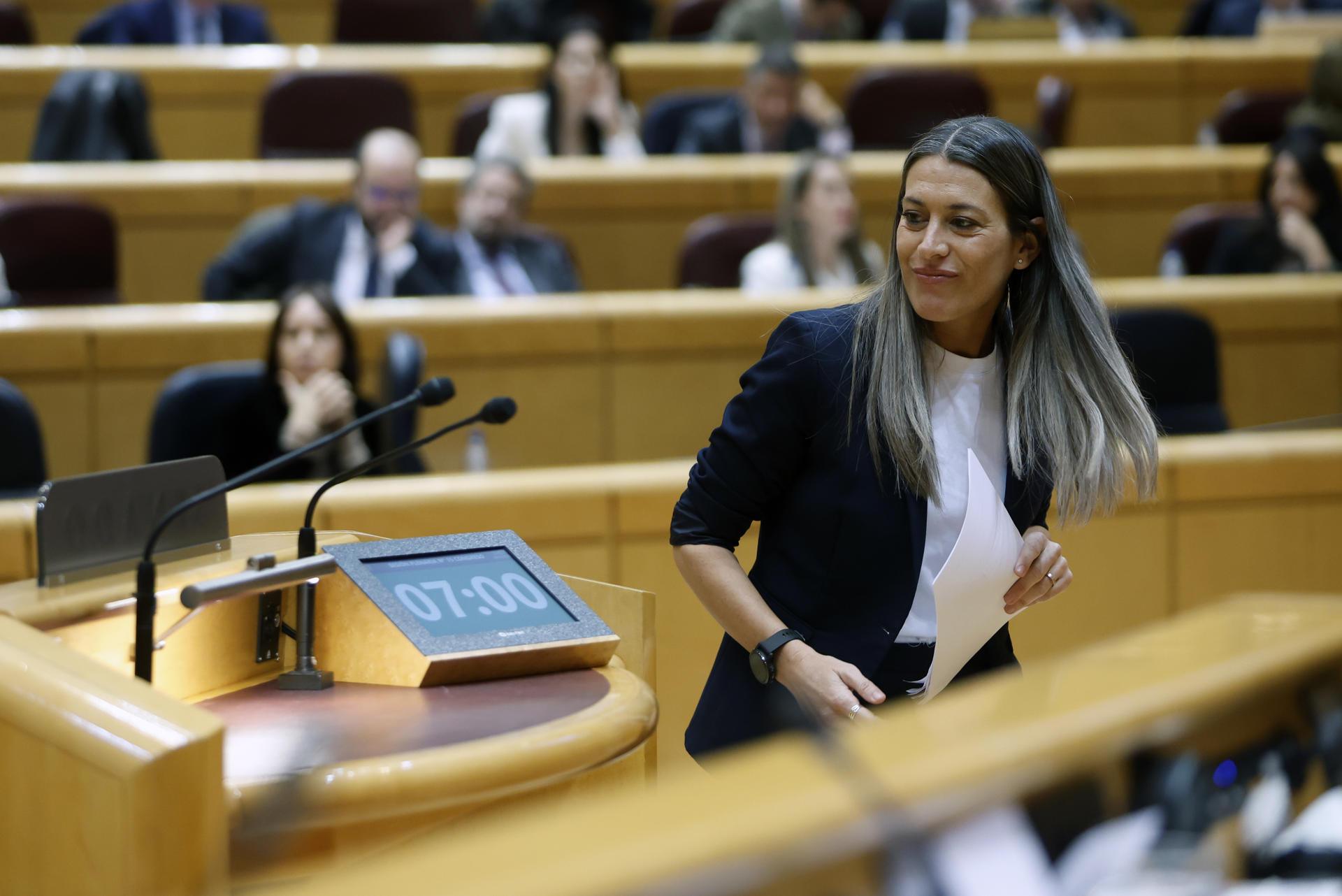Together for Catalonia (Junts) has, in the end, backed the Spanish government's three decree laws after reaching agreement with the Socialists (PSOE) on three points: the complete delegation of powers over immigration to the Catalan government, the deletion of Article 43 bis of the law on civil trials (which, in the opinion of Junts, put at risk the application of the amnesty law) and, thirdly, the publication of tax balances between Catalonia and the Spanish state. With this deal, the seven Junts MPs in the Congress of Deputies agreed not to take part in the voting on the three royal decrees, allowing one of them to prosper by a simple majority by obtaining more votes in favour than against. The second decree was not validated due to the vote against by Podemos, while in the third, voting had to be repeated due to a tie. For this tied vote, the decree went ahead on the second time around, due to Junts's abstention. The negotiations with the Socialists over the last few hours have been frantic.
In a statement made public shortly after the result of the parliamentary voting, Junts announced that the agreement has made it possible "to improve the self-government and living conditions of Catalans". Specifically, the points incorporated in the pact with the PSOE are the comprehensive delegation of powers on immigration to the Generalitat. The party founded by Carles Puigdemont explains that this will be done through Article 150.2 of the Spanish Constitution and that it will be articulated through a specific law for Catalonia. According to Junts, this transfer of competencies "will be accompanied by the necessary resources" and will allow Catalonia "to be able to make overall policy so that it is the Catalan government and Parliament who determine their own policy, appropriate to the needs and the reality of the country". The first of the decrees, which included the controversial article that could put the entry into force of the Catalan amnesty law on hold if a Spanish judge saw it necessary to present a preliminary question on the legislation to the European courts, has been processed as an ordinary bill, which will thus be debated with the opportunity for amendments. In this regard, the Socialists have pledged to repeal the controversial article on the reform of the law on civil trials. In subsequent statements in the chamber, Míriam Nogueras asserted that "with the votes of Junts, the citizens of Catalonia must win". "The powers we have must be respected and the resources that belong to us must arrive," she added, before detailing the content of the agreement.
Publication of tax balance data and reform of capital companies law
In addition, the agreement includes the "immediate" publication of official data making it possible to calculate tax balances - that is, providing transparency on the reality of the fiscal deficit that Catalonia suffers. Another of the points on which Junts focused was on the return to Catalonia of registered business addresses for those companies who changed their registration after October 2017. The party proposed tax incentives for those that returned and penalties for those that did not. However, what they have agreed with the PSOE, according to the Junts statement, is the reform of the capital companies law, to reverse the decree-law of the PP government's fiat of October 2017 and allow "companies to return to Catalonia". Four further items were also agreed: for the VAT on oil to be 0%, for the amount that the state is to transfer to the Catalan government for the digitization of the administration of justice to be multiplied by five (from 1.2 million to 6.2 million euros), for the Spanish state to assume "the entire cost" of the discounts and bonuses applied to the price of public transport and for the "recognition of the historical rights of Catalonia in matters related to local bodies".
ERC achieves transfer to Catalonia of Minimum Income scheme
At the same time, the Catalan Republican Left (ERC) points out that it has also obtained some solid benefits in return for its support for the decree laws. ERC celebrates a series of labour-related measures related to breastfeeding, the priority of regional collective agreements over state ones, and a ban on dismissals due to increases in the price of energy. As well, a series of other social measures related to the suspension of evictions of vulnerable people, pensions, and the transfer to Catalonia of the management of the Minimum Income scheme, among others.

